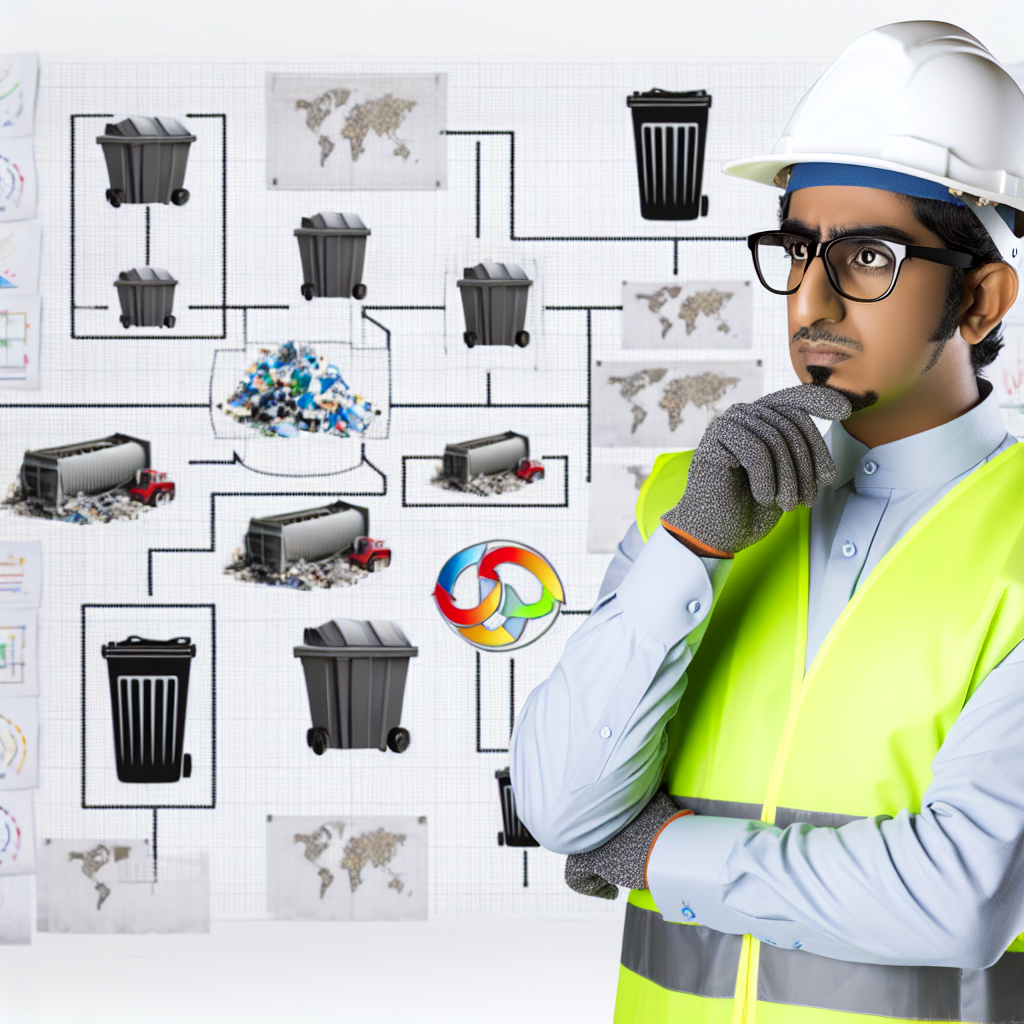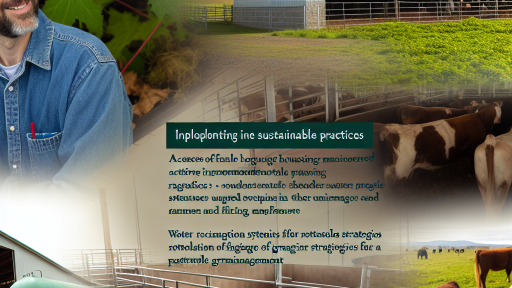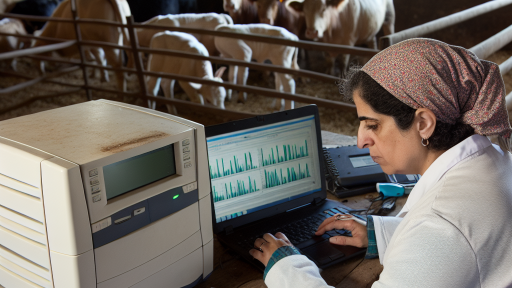Understanding the Importance of Waste Management Systems
Environmental Impact
Effective waste management systems significantly reduce environmental pollution.
They help maintain clean air, soil, and water resources.
Moreover, proper waste disposal minimizes habitat disruption.
Consequently, local ecosystems can thrive when waste is managed correctly.
Public Health Safety
Improper waste management poses health risks to communities.
Hazardous waste can lead to serious illnesses and accidents.
Effective waste management systems prevent the spread of diseases.
They also ensure that waste is treated before disposal.
Economic Benefits
Investing in waste management systems can lead to considerable savings.
Efficient waste disposal reduces costs associated with cleanup efforts.
Additionally, it can create job opportunities in waste management sectors.
Communities can benefit economically from recycling and composting initiatives.
Compliance with Regulations
Many countries enforce strict regulations on waste management practices.
Adhering to these guidelines prevents legal issues for businesses.
Compliance enhances the reputation of corporations and municipalities alike.
Transform Your Agribusiness
Unlock your farm's potential with expert advice tailored to your needs. Get actionable steps that drive real results.
Get StartedFurthermore, it contributes to better community relations.
Social Responsibility
Companies and individuals are increasingly aware of their environmental footprint.
Implementing effective waste management demonstrates social responsibility.
It shows commitment to sustainability and community welfare.
Consequently, this can lead to increased customer loyalty and support.
Types of Waste Management Systems: Overview and Comparisons
Introduction to Waste Management Systems
Waste management systems play a crucial role in maintaining a clean environment.
They help reduce the negative impacts of waste on public health and ecosystems.
Understanding the various types of systems can aid in making informed decisions.
Municipal Solid Waste Management
This system handles waste generated from households, offices, and commercial establishments.
It typically includes collection, transport, processing, and disposal of waste.
Municipalities often oversee these operations to ensure compliance with regulations.
Effective municipal systems aim to minimize waste through recycling and composting.
Key Features
- Collection services for residents and businesses.
- Recycling and composting programs to reduce landfill use.
- Public education campaigns on waste reduction and disposal.
Industrial Waste Management
Industrial waste management addresses waste produced by factories and manufacturing facilities.
These wastes often contain hazardous materials requiring special handling.
Industries follow regulations to ensure safe disposal and minimize environmental impacts.
Innovative technologies are increasingly being adopted for better waste processing.
Key Approaches
- Source reduction to minimize waste generation at the outset.
- Recycling of materials to recover valuable resources.
- Treatment methods to neutralize hazardous substances before disposal.
Hazardous Waste Management
Hazardous waste management focuses on substances that pose substantial risks to health and the environment.
This includes chemical, medical, and electronic wastes.
Specialized facilities handle hazardous materials to prevent contamination and hazards.
Strict regulations govern the transportation and disposal of hazardous waste.
Strategies for Safe Management
- Identification and classification of hazardous waste types.
- Use of containment strategies to prevent leaks and spills.
- Implementation of tracking systems to monitor waste movement.
Organic Waste Management
Organic waste management focuses on biodegradable materials, primarily food waste and yard debris.
This system promotes composting as a sustainable disposal method.
Composting returns valuable nutrients to the soil, aiding in nutrient cycling.
Local governments often support community composting initiatives.
Showcase Your Farming Business
Publish your professional farming services profile on our blog for a one-time fee of $200 and reach a dedicated audience of farmers and agribusiness owners.
Publish Your ProfileBenefits of Organic Waste Management
- Reduces landfill volume and associated emissions.
- Enhances soil health through nutrient-rich compost.
- Encourages community involvement in sustainability efforts.
Comparative Overview of Systems
Each waste management system has unique principles and applications.
Municipal systems focus on residential waste, while industrial systems target manufacturing refuse.
Hazardous waste management centers on safety and compliance, whereas organic waste systems emphasize sustainability.
The choice of a suitable system depends on specific needs and waste types.
Factors to Consider When Choosing a Waste Management System
Assessment of Waste Types
Start by identifying the types of waste your facility generates.
Different materials require specialized disposal methods.
Assess the volume of each waste type produced regularly.
This data helps in selecting the appropriate system.
Additionally, consider any hazardous materials being disposed of.
Regulatory Compliance
Understanding local regulations is crucial for your selection process.
Different regions have specific waste management laws.
Ensure that your chosen system adheres to these rules.
Non-compliance can lead to fines and legal issues.
Consult with experts to navigate complex regulations.
Cost Considerations
Evaluate the total cost of implementing a waste management system.
Include initial setup costs, ongoing operational expenses, and disposal fees.
Compare different systems to identify the most cost-effective solution.
Costs should align with your organization’s budget.
Additionally, factor in potential savings through efficient waste practices.
Technological Integration
Examine the technological features of each waste management system.
Modern systems should support automation and data tracking.
Look for solutions that integrate with existing software.
This integration can streamline waste reporting and analysis.
Ensure user-friendliness to facilitate staff training and operations.
Sustainability Goals
Align the waste management system with your environmental goals.
Consider systems that emphasize recycling and resource recovery.
Sustainable waste practices can enhance your organization’s reputation.
Research companies that prioritize eco-friendly solutions.
Ultimately, choose a system that supports long-term sustainability.
Supplier Reputation and Support
Research the reputation of potential waste management suppliers.
Consider their history of service and customer satisfaction.
Look for reviews and testimonials from other clients.
Reliable support from suppliers can be invaluable post-installation.
Ensure they offer timely assistance and maintenance services.
Flexibility and Scalability
Ensure that the waste management system can adapt to future needs.
Your waste management requirements may change as your business grows.
Choose a solution that offers scalable options for expansion.
This flexibility can save you from needing a complete overhaul later.
Thus, a scalable system promotes long-term investment viability.
Discover More: Optimal Housing Solutions for Beef Cattle
Showcase Your Farming Business
Publish your professional farming services profile on our blog for a one-time fee of $200 and reach a dedicated audience of farmers and agribusiness owners.
Publish Your ProfileEvaluating Local Regulations and Compliance Requirements
Understanding Local Regulations
Local regulations establish the legal framework for waste management.
These laws vary significantly across different regions.
It’s essential to identify the specific regulations in your area.
Start by checking with local government offices.
Municipal websites often provide updated information on waste management regulations.
Compliance Requirements
Compliance with regulations is crucial for effective waste management.
Failure to comply can result in legal penalties and fines.
Understand the necessary permits required for your waste management system.
This includes permits for collection, disposal, and recycling activities.
Environmental Standards
Many local regulations set environmental standards to protect public health.
These standards may focus on emissions, contamination, and landfill usage.
Review environmental guidelines to ensure your practices align with regulations.
Consulting with Experts
Consulting with waste management experts can provide valuable insights.
Experts help organizations navigate complex regulatory landscapes.
They can assist in developing compliant waste management strategies.
It’s wise to consider legal advice if unsure about specific regulations.
Staying Informed on Changes
Regulations regarding waste management can change frequently.
Stay informed about any updates or new laws in your community.
Participating in local business associations can help in this regard.
These groups often share vital information on regulatory changes.
Learn More: Energy Efficient Livestock Housing Designs
Cost Analysis: Budgeting for Waste Management Solutions
Budgeting for waste management is a crucial step for businesses.
A clear budget helps in evaluating various waste management options.
Furthermore, it ensures that resources are allocated efficiently.
Key Components of Waste Management Costs
Waste management costs can be categorized into several components.
These include collection fees, processing fees, and disposal fees.
Additionally, there might be costs associated with recycling and composting.
It’s important to consider hidden costs such as penalties or fines.
Comparing Waste Management Solutions
Evaluate various waste management solutions based on their costs.
Consider both upfront and ongoing costs when making comparisons.
Some solutions may require a higher initial investment but offer long-term savings.
Gather multiple quotes from different waste management companies.
Making Informed Decisions
An informed decision requires thorough research and analysis.
Study the reputation and experience of potential waste management providers.
Consult reviews from other businesses to understand their experiences.
Additionally, assess the financial health of potential partners.
Setting a Realistic Budget
Establish a budget that aligns with your company’s financial capabilities.
Consider both short-term and long-term waste management needs.
Be prepared to revisit and adjust your budget as necessary.
Monitoring and Assessing Costs Over Time
Regularly monitor your waste management expenses to ensure compliance with the budget.
Showcase Your Farming Business
Publish your professional farming services profile on our blog for a one-time fee of $200 and reach a dedicated audience of farmers and agribusiness owners.
Publish Your ProfileKeep track of any changes in service rates or operational costs.
This awareness allows you to identify areas for improvement.
Maintain open communication with your waste management service provider.
Discover More: Sheep Breeding Strategies for Optimal Lambs

Assessing the Environmental Impact of Different Systems
Overview of Waste Management Systems
Waste management systems play a crucial role in environmental protection.
Different systems vary significantly in their ecological impacts.
This section evaluates their effects on the environment.
Landfills
Landfills are one of the most common waste disposal methods.
They can cause soil and water contamination.
Moreover, landfills produce greenhouse gases like methane.
However, modern landfills employ various technologies to mitigate these impacts.
Benefits
They require less immediate capital investment compared to other systems.
Furthermore, recycling programs can divert waste from landfills.
Challenges
Despite their benefits, landfills are not a long-term solution.
They occupy large land areas and disrupt ecosystems.
Additionally, community health can suffer due to pollution.
Incineration
Incineration involves burning waste at high temperatures.
This method significantly reduces waste volume.
Yet, it releases harmful emissions into the atmosphere.
Advanced incinerators have pollution control systems to reduce these emissions.
Benefits
Incineration generates energy, contributing to waste-to-energy initiatives.
It minimizes the space requirements for waste management.
Challenges
The burning process can produce toxic byproducts.
Public opposition often arises due to air quality concerns.
Recycling
Recycling is an environmentally friendly option for waste management.
It reduces the need for raw materials and conserves resources.
Moreover, recycling lowers greenhouse gas emissions.
However, recycling programs require community participation to succeed.
Benefits
Recycling promotes a circular economy.
It also supports local jobs in recycling industries.
Challenges
Contamination can undermine recycling efforts.
Educational initiatives are often necessary to improve recycling rates.
Composting
Composting transforms organic waste into valuable soil amendments.
This process not only reduces landfill waste but enriches soil health.
Composting also decreases methane emissions compared to landfills.
Benefits
It promotes biodiversity by enhancing soil quality.
Moreover, composting can be performed at both industrial and household levels.
Challenges
Composting requires proper management to be effective.
Urban areas may lack the space for large composting facilities.
Choosing the Right System
When choosing a waste management system, consider its environmental impact.
Showcase Your Farming Business
Publish your professional farming services profile on our blog for a one-time fee of $200 and reach a dedicated audience of farmers and agribusiness owners.
Publish Your ProfileEvaluate local regulations and community needs.
Additionally, weigh costs and public acceptability of each option.
Finding a suitable waste management strategy enhances sustainability.
Find Out More: Integrating Genetics into Your Livestock Management Plan
Technological Innovations in Waste Management
Smart Waste Collection Systems
Smart waste collection systems optimize the process of garbage pickup.
These systems utilize sensors to monitor waste levels in real-time.
As a result, collection routes adjust based on actual need.
Consequently, cities save fuel and labor costs.
Waste Sorting Technologies
Innovations in waste sorting technologies enhance recycling efforts.
Automated sorting machines separate recyclable materials with precision.
This technology significantly increases recycling rates.
Additionally, it minimizes contamination in recycling streams.
Composting and Organic Waste Solutions
Advanced composting methods transform organic waste efficiently.
These methods reduce landfill dependency while enriching the soil.
Moreover, community composting programs promote local sustainability.
Residents learn to manage waste responsibly through these initiatives.
Waste-to-Energy Technologies
Waste-to-energy technologies convert waste material into usable energy.
This process reduces landfill volume significantly.
Furthermore, it generates clean energy for local communities.
Such systems help decrease greenhouse gas emissions.
Plastic Waste Innovations
Innovative solutions address the global plastic waste crisis.
Biodegradable plastics offer an alternative to traditional materials.
Additionally, advanced recycling techniques enable the breakdown of plastics effectively.
These developments encourage sustainable consumption practices.
Community Engagement Platforms
Technological platforms enhance community engagement in waste management.
Apps allow residents to track their waste production and recycling efforts.
Moreover, educational campaigns raise awareness about waste reduction.
As a result, communities become more proactive in waste management practices.
Case Studies: Success Stories of Effective Waste Management
Recycling Initiatives in Urban Areas
In 2020, the city of Boulder launched an innovative recycling program.
This initiative aimed to reduce waste and promote environmental consciousness.
As a result, the city saw a 25% increase in recycling rates within the first year.
The program included educational workshops for residents.
It also partnered with local businesses to streamline recycling practices.
Composting Success in Community Gardens
The Garden City community established a composting system in 2019.
This project aimed to minimize organic waste disposal.
Within two years, it diverted approximately 15 tons of waste from landfills.
Community members actively participated in composting workshops.
They learned how to recycle kitchen scraps effectively.
Electronic Waste Management
TechTown implemented an electronics recycling program in 2018.
This initiative targeted the growing problem of e-waste disposal.
Showcase Your Farming Business
Publish your professional farming services profile on our blog for a one-time fee of $200 and reach a dedicated audience of farmers and agribusiness owners.
Publish Your ProfileResidents were encouraged to bring in obsolete electronics for safe recycling.
Within a year, the program recycled over 500 tons of e-waste.
TechTown partnered with certified e-waste recyclers to ensure responsible handling.
Corporate Waste Reduction Strategies
Green Solutions Inc. adopted a comprehensive waste management plan.
This strategy focused on reducing waste at the source.
In 2021, they reduced their landfill contributions by 40%.
Employees participated in regular training sessions on waste management practices.
The company also introduced a zero-waste policy in its offices.
Innovative Waste-to-Energy Projects
The EcoEnergy plant began operations in 2017.
This facility converts waste into renewable energy sources.
It efficiently processes municipal solid waste to generate electricity.
Over the years, it has produced enough energy to power thousands of homes.
This project exemplifies a sustainable approach to waste management.
Additional Resources
Guide for the Care and Use of Laboratory Animals, 8th edition …




